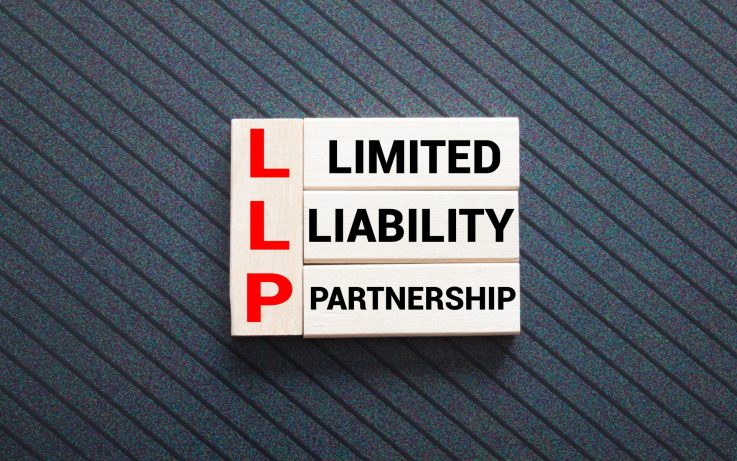Inheritance Tax In the UK

The UK inheritance tax rate is 40%. However, if a person makes a will and distributes assets before their death, it can significantly reduce the tax burden for heirs. The statistics say that a third of UK adults have a will before they turn 55, and 66% of people over 55 have already made a will. A deceased’s estate includes all properties, cars, savings, investments, and personal belongings.
The History of Inheritance Tax
The first form of inheritance tax on an individual’s estate dates back to 1694. A “Probate Duty” was introduced by the Stamps Act to help finance the War of the League of Augsburg. It was based on a similar document from Holland. As a result, the UK raised £50,000 to supply the military campaign with the necessary equipment. The inheritance tax (IHT) as we know it now was introduced back in 1986 replacing a probate duty.
Why Make a Will?
Some people avoid making a will because it is emotionally challenging or, they argue, they only have a small capital. However, this is not a matter to ignore because any UK assets will attract inheritance tax one day. Therefore, it’s better to take care of it beforehand, because no matter how big your assets are, they can be an excessive burden for your heirs.
A deceased person’s domicile can be crucial in determining heirs. If you have been a UK resident for 15 out of the last 20 years, all your worldwide assets are subject to local inheritance tax. If you are non-domiciled, the UK court will only rule about UK properties.
Disposal of Inheritance
In the UK, how the inheritance is disposed of depends on the jurisdiction. In Scotland, children and spouses are entitled to receive a certain portion of the estate. However, there is no “forced heirship” in other jurisdictions. Therefore, it is possible not to include some relatives in a will. For example, it is possible to divide assets between two children instead of three.
However, if children or other relatives are dependent on the deceased, they must be included in the will and get their share regardless of their domicile.
Joint Property Ownership
Sometimes a property is jointly owned. On the death of one owner, special rules of inheritance are applied to their share:
- All money in joint bank accounts belongs to the co-owner and is not subject to taxation.
- If shares are not allocated, the property automatically goes to the other owner on your death. It is exempt from taxation.
- You can pass on your share of the property in a will. If there is no will, the intestacy rules apply.
Intestacy Rules In the UK
If there is no will, the UK law will distribute the estate between heirs but their number and shares will be affected. The inheritance tax threshold is £250,000: if a person’s estate is worth less than that, the whole estate goes to a spouse. If the estate exceeds £250,000, it will be divided in accordance with the intestacy rules:
- If there are no children, a spouse gets the whole estate.
- If there is no spouse, the whole estate is equally distributed between the children.
- If there is no spouse and children, the whole estate is distributed between the grandchildren.
- If there is a spouse and children, a spouse receives all personal belongings and £250,000; the remaining estate is divided in half with one half going to a spouse and the other half to the children.
- If no surviving relatives exist, the whole estate goes to the state.
It is important to keep in mind that if there is no will, an unmarried partner will not inherit the estate automatically. However, they can appeal to a court. In some cases, claimants managed to get a portion of the estate.
According to UK law, even a written will becomes void when:
- You get married.
- You get divorced.
Do not forget to update your will when your marital status changes.
Distant relatives and friends are not considered heirs under the intestacy rules without a will. Accordingly, it is important to draft a will if you wish to give something to any of them.
The Inheritance Process
All the deceased’s assets are frozen until an executor or executors named in the will have been officially appointed by the court. They conduct an inventory, access the monetary value of the estate and fill in a tax return. After completing the necessary procedures, the executors must pay off any debts of the deceased and the inheritance tax. It can take a long time to get the inheritance. Once all the payments are made the estate can be transferred to the heirs.
In some cases, pay-outs can be made in advance, for example, to cover the cost of the funeral. Banks are usually very understanding.
Inheritance Tax Rates
The standard inheritance tax rate is 40% and it’s charged on real estate, bank assets, personal belongings and even gifts made in the last 7 years. The estate inherited by a spouse is exempt from taxation. Children, grandchildren and great-grandchildren are eligible for two tax reliefs:
- A tax-free threshold is £325,000 (anything above that is taxed at 40%).
- If children inherit residential property, there is an additional relief of £125,000. If a flat or a house cost more than that, the balance is taxed at 40%.
Note that reliefs can aggregate. If both parents die at the same time, children can claim a deduction of £900,000.
If an heir decided to sell inherited assets whose value has increased, they are liable to a capital gains tax (CGT). Different rules apply to it and it will be covered in another article. It is just important to remember that a quick sale leads to double taxation.
Gift Tax
In the UK, gifts worth more than £3,000 and given within 7 years before death are also subject to the inheritance tax. There is a scale of tax rates depending on how long before a person’s death the gift has been given. It’s a 40% tax on gifts given in the 3 years before death. Gifts made 3 to 7 years before death are taxed on a sliding scale of 8% a year. Gifts are IHT-free after 7 years.
Exemptions From Inheritance Tax
You should contact advisors to plan your assets and free them from the IHT as much as possible. An expert will objectively assess your case, identify the goal, heirs and suggest how to optimise the tax burden. Some examples are given below.
- You can give a total of £3,000 worth of gifts per tax year without them being taxed. It can be one person or several relatives and/or friends.
- You can give as many gifts as you want of up to £250 per person each tax year.
- You can give your child a wedding gift of £5,000. The total amount from both parents is £10,000.
- If you leave at least 10% of your total assets to a charity, then the inheritance tax rate on the remaining assets will be reduced to 36%.
- You do not need to count the money spent on caring for elderly parents, minor children or ex-spouses.
- Planning your taxes when buying a property will minimise the tax burden of co-owners.
These are just a few examples of how you can optimise your taxes in the UK. The earlier you think about inheritance, the easier it will be to reduce the tax burden and distribute inheritance between relatives and friends. Everyone wants to live forever, but no one has done it. However, everyone can leave a lasting memory and give financial security to future generations.
FAQ about UK Taxes
How much is the UK inheritance tax?
UK inheritance tax rate is high – 40%. You should also keep in mind the seven-year rule. Receiving property as a gift, buying it at a price that is lower than the market one, or getting it from a third party in any other way, attracts an inheritance tax if the previous owner dies within seven years after the ownership is transferred. During this period, the rate will gradually decrease: 32% – in three years, 24% – in four years, and so on. You do not have to pay an inheritance tax if you receive a gift from your spouse. If any other relative gifts property to you, you can get the following benefits:
- First £325,000 of the property value is tax-free. The rest is taxed at a 40% rate.
- An additional £125,000 are tax-free for children inheriting property from their parents. The rest is taxed at a 40% rate.
Benefits can be combined and multiplied by the number of parents. For example, if a child loses both parents and inherits their property, they can receive a tax allowance of £900,000.
If you decide to sell your inherited property, you will only have to pay a capital gains tax.
For more information, contact experienced advisors.
Does the UK inheritance tax depend on domicile?
If you have stayed in the UK for more than 15 years in the last 20 years, in other words, you are a UK tax resident, all your property and assets inside and outside the country will be exposed to UK inheritance tax.
If you do not have a UK domicile (you have stayed in the UK for less than 15 years in 20 years), only UK property will be taxed. Citizenship is of no relevance here.
What should I do if I inherited not only property but also debts?
Let’s imagine a situation when a deceased person who left you their property has also left some unpaid debts. In the UK, before you can take ownership of the property, you must pay off all the inherited debts first. After that, you pay an inheritance tax of 40%. However, there are some exceptions. To learn more, you should discuss your case with experienced specialists.







